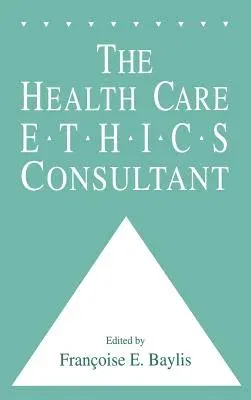The primary objective of The Health Care Ethics Con- sultant is to focus
attention on an immediate practical problem: the role and
responsibilities, the education and training, and the certification and
accreditation of health care ethics consultants. The principal questions
addressed in this book include: Who should be considered health care
ethics consultants? Whom should they advise? What should be their
responsi- bilities and what kind of training should they have? Should
there be some kind of accreditation or certification program to ensure
that those who call themselves ethics consultants are in fact qualified
to advise, consult, research, and write in health care ethics? The
distinguished authors ofthese articles are persons with diverse
backgrounds, interests, presumptions, and val- ues. Not surprisingly,
therefore, diverse responses have emerged to the questions posed. Though
the book's chapters are individually authored, they are informed by the
group discussions that went on during active workshop sessions, and by
knowledge of the contributions of others. All of the chapters
meaningfully represent their consensus. This is not to say that there
were no disagreements regarding specific details, but rather that there
were no fundamental objections on the book's basic content among a panel
of authors who share basic premises regarding the role,
responsibilities, education, and certifica- tion of health care ethics
consultants.

